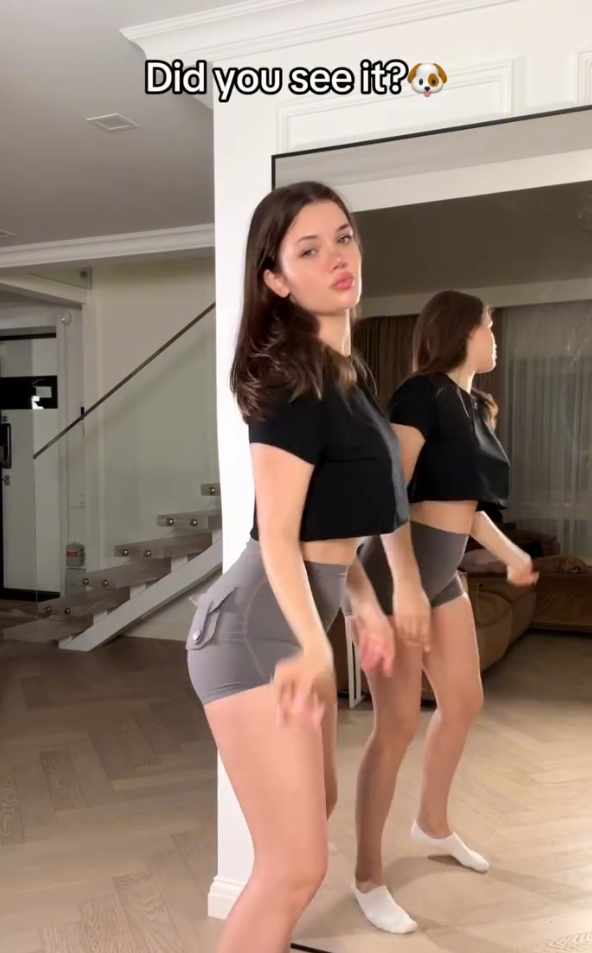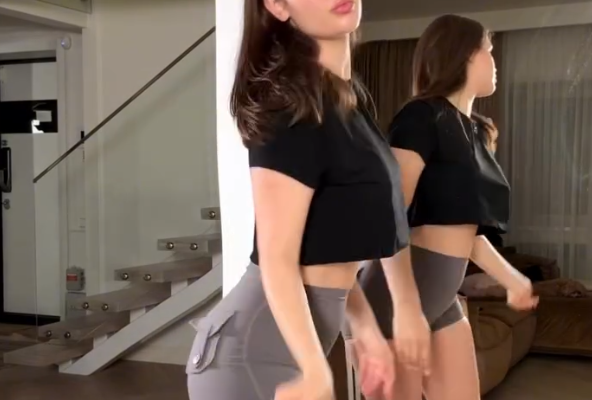Twerking is one of the most talked-about dance moves of the modern era. From viral TikTok trends to music videos and even fitness classes, it has taken the world by storm. But the question remains: should you twerk more often? Whether you’re a seasoned twerker or someone who’s never tried it, there are plenty of reasons to consider incorporating more twerking into your life. Let’s explore the benefits, the cultural significance, and even the potential downsides of twerking regularly.

The Health Benefits of Twerking
Twerking isn’t just a dance move—it’s a serious workout. If you’ve ever tried it, you know it requires leg strength, core stability, and endurance. Here are some health benefits of twerking more often:
1. A Great Cardio Workout
Twerking is a high-energy movement that can get your heart pumping. The constant squatting, hip thrusting, and bouncing help elevate your heart rate, making it a fun alternative to traditional cardio exercises like jogging or jumping rope.

2. Strengthens Your Lower Body
Your glutes, thighs, and calves get a major workout when you twerk. The movement engages the muscles in your lower body, helping you build strength and endurance over time. If you want toned legs and a firm booty, twerking might be the answer!
3. Core Activation
One of the secrets to a good twerk is a strong core. The movement forces you to engage your abdominal muscles to maintain balance and control. This can lead to better posture and a stronger midsection over time.

4. Improves Flexibility and Mobility
Twerking involves a range of motions that can improve your flexibility, particularly in your hips and lower back. If you struggle with stiffness or mobility issues, practicing twerking can help loosen up those tight muscles and joints.
5. Burns Calories
Because twerking is an intense full-body workout, it can help you burn calories. If you’re looking for a fun way to shed some extra pounds, dancing—including twerking—might be a great addition to your fitness routine.
The Cultural Significance of Twerking
Twerking has been a popular dance style for years, but its roots go much deeper than many people realize. This dance has origins in West African and Caribbean dance traditions, where movements similar to twerking have been part of cultural celebrations for centuries.
The modern version of twerking gained widespread popularity in the early 2000s, particularly in hip-hop and bounce music scenes. Artists like Big Freedia helped bring New Orleans bounce music—and its signature dance moves—to a global audience.
It’s important to acknowledge the history of twerking and respect its cultural significance. While it’s often seen as just a fun dance move, understanding where it comes from allows us to appreciate it on a deeper level.
Boosting Confidence and Self-Expression
Dancing, in general, is a great way to express yourself, and twerking is no different. Moving your body freely can be incredibly empowering and boost your confidence in unexpected ways.
1. Embracing Your Body
Twerking is all about body movement, and it encourages you to embrace and celebrate your body just as it is. It can help you feel more comfortable in your skin and develop a sense of self-love.
2. Letting Loose and Having Fun
There’s something liberating about dancing with no inhibitions. Twerking allows you to let go of stress and just enjoy the rhythm of the music. Whether you’re dancing alone in your room or at a party with friends, it’s a great way to boost your mood.
3. Building Confidence
Mastering a new dance move—especially one as bold as twerking—can give you a major confidence boost. The more you practice, the more comfortable you’ll become, and this newfound confidence can spill over into other areas of your life.
Social Aspects of Twerking
Twerking isn’t just a solo activity; it’s also a fun way to connect with others. Whether it’s through dance classes, social media challenges, or parties, twerking can bring people together in a lighthearted and energetic way.
1. Joining Dance Communities
There are many dance classes and workshops dedicated to twerking and other dance styles. Joining a class can be a great way to meet new people, stay active, and learn from experienced dancers.
2. Participating in Social Media Trends
Platforms like TikTok and Instagram are filled with dance challenges, many of which involve twerking. If you enjoy social media, participating in these trends can be a fun way to engage with a larger community and show off your moves.
3. Breaking the Ice at Parties
Let’s be real—twerking is a conversation starter. If you want to be the life of the party, knowing how to twerk can definitely get people talking. It’s a great way to add energy to any social gathering.
Are There Any Downsides to Twerking?
As fun and beneficial as twerking can be, it’s worth considering some potential downsides:
1. Physical Strain
If you’re not used to intense lower-body movement, twerking can put strain on your knees, back, and hips. It’s important to warm up properly and practice good form to avoid injury.
2. Social Stigma
While twerking is widely accepted in many circles, some people still view it as inappropriate or overly provocative. If you’re worried about judgment, you might want to consider where and when you choose to twerk.
3. Overdoing It
Like any physical activity, moderation is key. If you twerk excessively without proper rest, you might experience muscle fatigue or soreness. Listen to your body and take breaks as needed.
Final Verdict: Should You Twerk More Often?
The answer depends on your personal preferences and comfort level. If you enjoy dancing and want a fun way to stay active, twerking is a fantastic option. It’s an exciting, confidence-boosting, and physically beneficial activity that can bring joy and energy to your life.
However, if twerking isn’t your thing, that’s okay too! The key takeaway is to find movement that makes you feel good and embrace it unapologetically. If you’re curious about twerking, why not give it a try? You might just discover a new favorite way to have fun and express yourself. 😎



